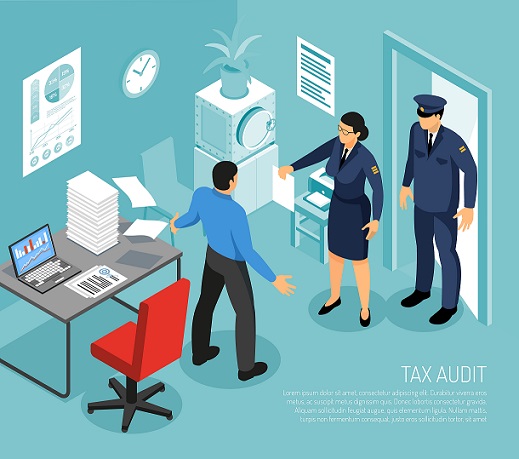Do you know What is pre-arrest bail-or post arrest? 498-A: No one can get bail if they are not in jail, according to the supreme court (crl.p._1075_l_2020.pdf ) of Pakistan, or if there is no case against them.
When the police have detained a person and the court decides that there is no reason for that person to be held in custody and that his imprisonment is likely to have caused him irreparable harm to his dignity, honor, or reputation, the court can sometimes grant pre-arrest bail, also called anticipatory bail.
Post-arrest bail can be approved if the accused is ready to submit a bail bond in the way that the Criminal Procedure Code says they should.
Who Am I? I’m Ijaz Ahmad Sandhu (Author of ValidLaws) working as an advocate in the Punjab High Court, the main goal is to write this article to enhance the knowledge of laws scholars/students related quarries and aware the legal rights.
After reading this article, I promise you’ll know what offenses have pre-arrest bail and what offenses have bailed after arrest.
BAILABLE & NON BAILABLE OFFENCES:
Section 496 describes bailable offenses Bail is granted as a matter of right in bailable offenses; however, once arrested for a general non-bailable offense, the accused must bring his or her case within the scope of the colonial language in section 497(2) of the Code of Criminal Procedure (CrPC) 1898 in order to regain his or her liberty.
Bailable offenses
- Giving false evidence
- Threatening any person to give false evidence
- Attempt to commit suicide
- Punishment for Cheating
- Forger
- Marrying again during the lifetime of the husband or wife
- Punishment for Defamation
Nonbailable offence:
Non-bailable offenses are offenses for which bail cannot be demanded by law. These crimes are listed in section 497 of the CRPC. Section 497 states that if there is sufficient ground to think that the accused is guilty punishable with death, life imprisonment, or punishment up to ten years then bail will not be granted to such person and these offenses can be;
- Adulteration of drug
- Punishment for murder
- Punishment for Culpable homicide not amounting to murder
- Dowry death Attempt to murder
- Punishment for Rape
- Punishment for robbery, theft, or Extortion
Types of Bail:
Bail is divided into the following types depending upon the nature of offense. Types of bail are as under;
- Pre arrest bail
- Post arrest bail
- Preventive bail
- After conviction bail

PRE ARREST BAIL
Pre-arrest bail is also called anticipatory bail because it is a way to get out of trouble with the law before an arrest. Section 498 of the Criminal Procedure Code describes pre-arrest bail. Pre-arrest bail is thought to be harder than other bails because it has to be based on more legal grounds than other bails, where only a few facts are known and the case is still fresh.
If someone thinks that they will be arrested on false or made-up charges or because of any enmity, or if they think that a false case will be made against them, or if they come to know that a false case has been made against them, they can ask the court for bail. If the court thinks fit, they can order that if they are arrested, they will be released on bail.
GROUNDS FOR PRE-ARREST BAIL:
- Arresting someone for reasons like making them feel bad or harassing them without reason.
- The prosecution’s goal is to hurt the person’s reputation and freedom in a way that can’t be fixed.
- How are the police motivated by politics?
- The crime itself does not have to be quite bad for bail to be denied.
Conditions fulfilling for grant of pre-arrest bail:
In which cases is bail granted?
The nature of the crime determines whether or not someone can get bail before being arrested. The court doesn’t think about whether the crime can be released on bail or not. The only thing that is needed is for you to show that you are not guilty and that the case is completely false and made up to hurt the petitioner.
Scope of pre-arrest bail:
The Supreme court of Pakistan expands the scope of pre-arrest bail. The lack of evidence against an accused person or the lack of a good reason to arrest them would be a justification to let them out on bail before they are arrested, and vice versa, according to a five-page ruling.
In many cases, this court has let accused people go free before they were arrested because there were no good grounds to believe they were involved in the crime. They did this without requiring independent proof that the police or complainant were being dishonest.
In which cases bail before an arrest is not granted?
There are some conditions in which bail before an arrest is not granted, are under;
- When a person has been convicted before, bail before an arrest is not a matter of right. Instead, it depends on the court.
- When it’s possible that the accused will change documents or get rid of the evidence, it’s up to the court to decide what to do.
- When the accused has committed a serious offense like murder, child trafficking, or is at risk of fleeing away.
- When the accused is a repeat offender who will commit the same crime again if he is let out on bail.
Case law for pre-arrest bail:
CRIMINAL PETITION NO. 537 OF 2021
Sajid Hussain vs State: Supreme Court of Pakistan granted pre-arrest bail to the accused which was rejected by the session and High Court.: Mld 1991 518
Zarina vs State: Magistrate/Trial Court was not required to put the accused in jail when delaying the start of the case or putting off the inquiry/Trial. The court can send the accused to jail on a warrant or release him on bail if he signs a bond with or without a surety, even though he hasn’t asked for bail.
POST ARREST BAIL:
Post arrest bail is granted to an accused both in bailable and nonbailable offenses. When the accused has been arrested by law enforcement and the court doesn’t think he or she needs to be locked up because it would hurt the person’s dignity, honor, or reputation then the court will grant him after arrest bail.
Honorable Court will release him on post-arrest bail by fulfilling the following conditions;
- That person can’t leave the country without the court’s prior consent.
- That the person can’t directly or indirectly offer an incentive, threat, or promise to someone who knows the facts of the case and wants to keep them from telling the court or a police officer about them.
- That the person should be ready to be interrogated by a police officer whenever needed.
- That the person gives the court the surety bonds to make the court satisfied until the case is resolved.
There are some important checks to avail post-arrest bail
Prohibitory clause:
A person can’t be availed post-arrest bail when there are solid reasons to believe that the accused has committed that crime, which is punishable by death, life, or ten years imprisonment.
Non Bailable offense:
To avail of post-arrest bail, there shouldn’t be any solid reason to believe that the accused has done a non-bailable crime. If someone has committed a crime that can’t be bailed out, he can’t get bail until a judge determines.
Sufficient grounds for further inquiry:
For a person to get after-arrest bail there should be enough reason to investigate whether or not they are guilty.
Section deals bail before arrest: 496 bailable 497 nonbailable
The court which can grant pre-arrest and post-arrest bail:
Section 497 of the Criminal Procedure Code says that the Court of Session and the High Court can give bail both before and after an arrest.
If you need bail in a special court matter like an FIA or Anti-Narcotics case, you should go to the relevant court.
The person who was accused had to show up in court.
For prohibitory bail, you can contact to High Court in your jurisdiction.
Bail bond:
Post-arrest bail can be approved if the accused is ready to submit a bail bond in the way that the Criminal Procedure Code says they should.
Case Law for Post Arrest Bail:
PLD 1963 SCMR 478
PROTECTIVE/ PREVENTIVE BAIL:
Under section 498 of the Criminal Procedure Code of 1898, an accused person can get protective bail when he or she can’t go to the concerned court and is in another province or if the same case is registered in two different courts. He can get pre-arrest bail from the High Court of his jurisdiction. This bail is temporary until you avail pre arrest bail from the concerned court.
Bail After Conviction:
Section 426 deals with bail after conviction. When this Code gives an escaped convict a sentence of death, life in prison, or a fine, that sentence goes into effect right away, as long as it doesn’t violate anything else in this Code.
When a term of imprisonment is given to an escaped convict under this Code, if it is harsher than the sentence the convict was serving when he ran, the new sentence goes into effect right away.
If the new sentence isn’t worse than the one the convict was serving when he escaped, the new sentence won’t take effect until he’s been locked up for another amount of time equal to the time left on his old sentence when he escaped.
For the purposes of Subsection (2), a sentence of rigorous imprisonment will be seen as more severe than a sentence of simple imprisonment.
Bail under Section 169 Criminal Procedure Code:
When there is not enough evidence, the accused is let go. If a person is in custody and after an investigation under this section, it seems to the officer in charge of the police station that there is not enough evidence or a valid reason to send the accused to a magistrate, that officer must release him on the condition that he signs a bond, with or without sureties, as that officer may direct, to appear, if and when asked, before a magistrate who has the power to hear the case.
So we can say in short that under this section officer in charge is empowered to release an accused on bail in a lack of evidence or false intentions case.
After Conviction Bail under Section 426 Criminal Procedure Code:
If a convicted person wants to appeal, the Appellate Court can, for reasons that must be written down, order that the sentence or order being appealed against is not carried out and that, if the person is in jail, he is released on bail or on his own bond.
So, a person can be released on bail after conviction and an example Nawaz Sharif is on bail after conviction.
Conclusion:
I can conclude that bail is a matter of right in bailable offenses and not a matter of right in non-bailable offenses. It has some types and the Section deal to bail is 496,497 and 498. Section 169 and Section 426 also deal with bail.







